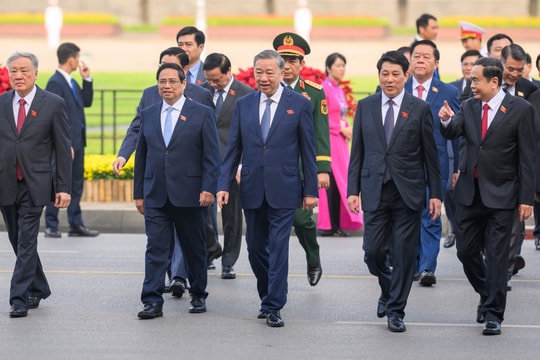The National Assembly discussed the draft Law on Amnesty and the Law on Animal Husbandry.
On the morning of November 7, National Assembly deputies listened to Member of the National Assembly Standing Committee, Chairwoman of the National Assembly's Judiciary Committee Le Thi Nga present a Report on explanation, acceptance and revision of the Amnesty Law project (amended).
Continuing the working program, on the morning of November 7, National Assembly deputies worked in the hall, listening to Member of the National Assembly Standing Committee, Chairwoman of the National Assembly's Judicial Committee Le Thi Nga present the Report on explanation, acceptance, and revision of the Amnesty Law project (amended) and discuss some contents with different opinions of the Amnesty Law project.
Based on the opinions of National Assembly deputies at the 5th Session, the draft Amnesty Law (amended) has been revised and completed, including 6 chapters and 40 articles.
The draft has added people who are temporarily suspended from serving their prison sentences to the list of subjects recommended for amnesty; added cases that are not recommended for amnesty for people convicted of one of the following crimes: treason (Article 108), activities aimed at overthrowing the people's government (Article 109), espionage (Article 110), rioting (Article 112) and terrorism against the people's government (Article 113), one of the crimes specified in Chapter XXVI (crimes against peace, crimes against humanity and war crimes) and terrorism (Article 299) of the Penal Code; serving a fixed-term prison sentence, people whose prison sentences are postponed, clearly defining subjects eligible for amnesty in special cases including: people who are serving a suspended sentence, people whose prison sentences are temporarily suspended, people who are being released from prison early on conditional terms, people who are serving life sentences.
According to the program, the Amnesty Law project (amended) will be voted and approved by the National Assembly at this session.
At the afternoon session, the National Assembly listened to Minister of Public Security To Lam, authorized by the Prime Minister, present the Report on the draft Law on Enforcement of Criminal Judgments (amended); Chairwoman of the National Assembly's Judicial Committee Le Thi Nga presented the Report on the examination of the draft Law on Enforcement of Criminal Judgments (amended).
At the 27th session (September 2018), the National Assembly Standing Committee reviewed and commented on the draft Law and agreed with the Government's proposal to expand the scope of amendments and convert the draft into the Law on Enforcement of Criminal Judgments (amended) to specify the provisions related to human rights and civil rights according to the 2013 Constitution, ensuring consistency and consistency with the Penal Code and other relevant laws, overcoming difficulties and obstacles in practical implementation. Accordingly, the draft Law is expected to amend 92/182 articles; add 1 chapter, 7 sections (52 articles) and abolish 1 section (4 articles) compared to the current Law on Enforcement of Criminal Judgments.
After this content, National Assembly deputies listened to Member of the National Assembly Standing Committee, Chairman of the National Assembly's Committee on Science, Technology and Environment Phan Xuan Dung present a Report on explanation, acceptance and revision of the Animal Husbandry Law project and discuss in the hall about a number of contents with different opinions of the Law project.
The Animal Husbandry Law Project was discussed and commented on by National Assembly deputies at the 5th Session and 26th Meeting of the National Assembly Standing Committee.
After being absorbed and revised, the draft Law has 7 chapters and 82 articles regulating animal husbandry, rights and obligations of organizations and individuals in animal husbandry, and state management of animal husbandry.
Some issues that continue to be consulted by National Assembly deputies at this session include regulations on State policies on animal husbandry in the direction of defining activities that the State invests in, supports, and encourages in accordance with the requirements of animal husbandry development in each period; having strong enough policies to develop animal husbandry according to industrial methods, closed chains, disease control, food hygiene and safety, and animal husbandry environment treatment (Article 4); Supplementing and adjusting regulations to provide more specific and clear regulations on prohibited acts (Article 12); Regulations on the List of animal breeds that need to be preserved and the List of animal breeds prohibited from export (Article 19); Supplementing and adjusting regulations on commercial animal feed (Article 32); Regulations on specific conditions on environmental protection for farm and household animal husbandry (Articles 53 - 61)...
According to the program, the Animal Husbandry Law project will be voted and approved by the National Assembly at this session./.

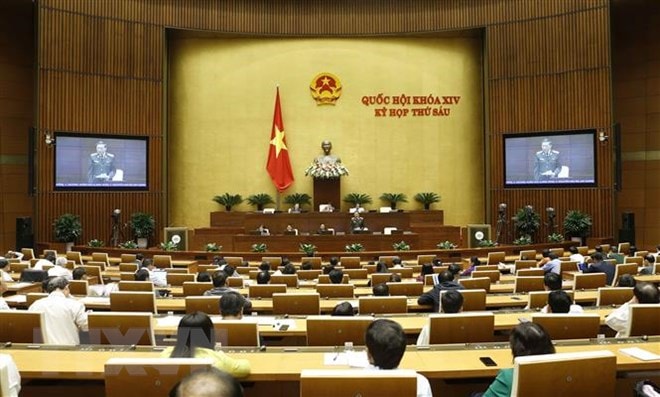
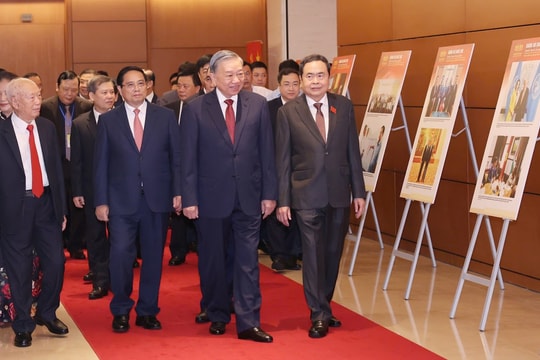

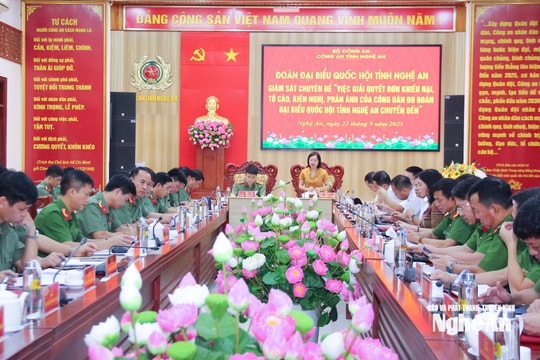
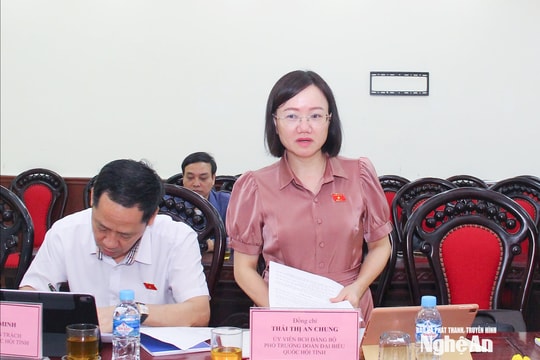

.jpg)
